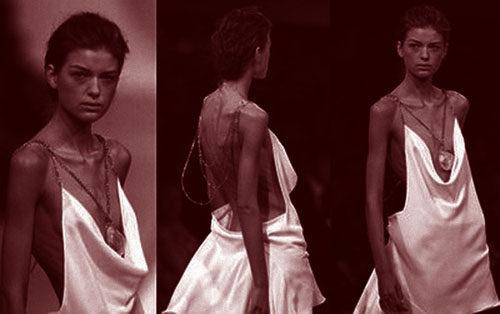以色列:模特过瘦禁止做广告

A new Israeli law bans showing overly thin models from local advertising in an attempt to fight the spread of eating disorders1. It also requires publications to disclose when they use altered images of models to make the women and men appear even thinner than they really are.2
The law, passed recently, appears to be the first attempt by a government to use legislation to take on a fashion industry accused of abetting eating disorders by idealizing extreme thinness.3 It could become an example for other countries grappling with the spread of anorexia and bulimia,4 particularly among young women.
In Israel, about 2 percent of all girls between 14 and 18 have severe eating disorders, a rate similar to other developed countries. The new law requires models to produce a medical report dating back no more than three months at every shoot that will be used on the Israeli market, stating that they are not malnourished by World Health Organization standards.5 The U.N. agency uses a standard known as the body mass index—calculated by factors of weight and height—to determine malnutrition. WHO says a body mass index below 18.5 is indicative of6 malnutrition.
The laws supporters said they hoped it would encourage the use of healthy models in local advertising and heighten awareness of digital tricks that transform already thin women into illusory waifs.7
1. disorder: 失调,紊乱。
2. disclose: 公开(某事);altered: 改变的。
3. abet: 教唆,怂恿;idealize: 使理想化。
4. grapple with: 尽力解决;anorexia: 食欲缺乏,厌食症;bulimia: 暴食症,贪食症。
5. shoot: 拍摄;malnourished: 营养不良的,下文的malnutrition是其名词形式。
6. be indicative of sth.: 显示出,表明。
7. illusory: 虚幻的;waif: 此处指苍白瘦弱的模特形象。

